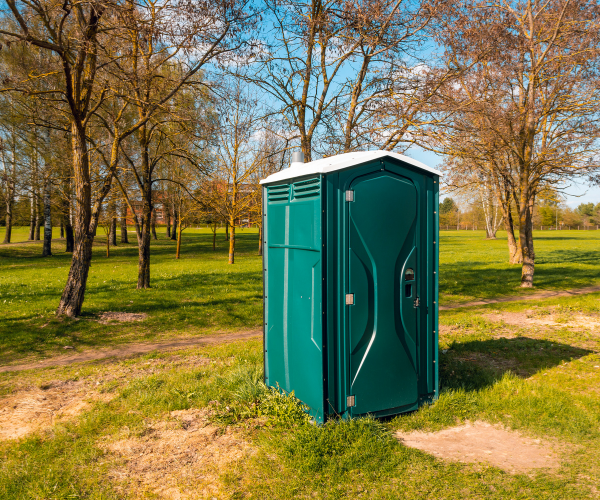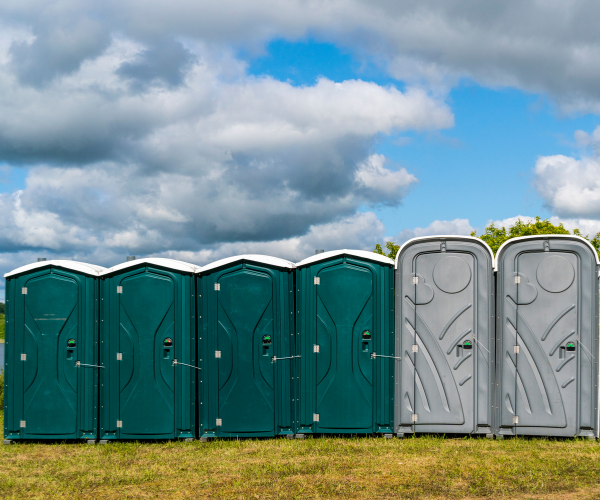Portable Toilets offer numerous eco-friendly advantages that make them a sustainable choice for events and construction sites. First and foremost, they are designed to reduce water consumption significantly, using up to 90% less water compared to traditional toilets. This conservation is ideal in areas experiencing water scarcity or where water resources must be managed carefully. Additionally, portable toilets help to prevent the leakage of untreated waste into the environment by containing waste in secure, sealed units. This containment ensures that pollutants do not seep into the ground or local water supplies, maintaining environmental integrity and promoting public hygiene. Another major benefit is the reduction in carbon footprint. The transportation and servicing of portable toilets are highly optimized, often involving fewer trips and lower fuel usage than expected. Modern units incorporate solar-power features for lighting and ventilation, further aligning with sustainable practices. These toilets can be transported in bulk to minimize emissions associated with multiple vehicle transit. Moreover, the waste collected from portable toilets is efficiently treated and processed at specialized facilities, preventing harmful substances from impacting natural ecosystems. The treatment process often includes converting waste into biofuels or fertilizers, contributing positively to a circular economy. Lastly, the materials and chemicals used in portable toilets have witnessed significant eco-friendly advancements, with biodegradable materials and safer chemicals that reduce environmental impact. Portable toilets provide a hygienic, environmentally responsible, and effective solution for sanitation needs, aligning with the global directive to lower human environmental impact.

Portable Toilet Rentals in Jackson County, South Carolina
Call today for a free quote (864) 477-7907
Portable Toilet
Fast, Easy, & 100% Free To Get Started
Over 20 Years Of Experience
With more than 20 years of expertise, our Portable Toilet company is firmly established in the Jackson County community. We focus on providing high-quality, dependable service to guarantee customer satisfaction.
Quality You Can Trust
Our Portable Toilet services deliver exceptional quality, emphasizing cleanliness and durability in every unit. Jackson County trusts our premium portable restroom solutions.
Fast and Reliable Delivery
Count on us for swift delivery of our portable toilets, ensuring your event or construction site has necessary sanitation facilities exactly when needed.
Reliable Portable Toilet Solutions in Jackson County
Call for a Free Quote Today
(864) 477-7907
In Jackson County, our Portable Toilet services offer unparalleled reliability and convenience for a range of events and situations. As a locally owned and operated business, we pride ourselves on being dependable and trustworthy. Our services cater to construction sites, parties, festivals, and weddings, providing clean and sanitized units that meet your specific needs. With a reputation for reliability, we ensure timely delivery and setup, allowing your events to run smoothly without any sanitation concerns. Choose us for exceptional service and peace of mind when it comes to meeting your portable toilet needs.


Our standard porta john rental units are durable and reliable for any commercial build site, housing development, public works project, or remodel job.Features include dome lighting, grated floors, and an “In-Use” locking mechanism for privacy and comfort. Regularly maintained, inspected, and cleaned by FusionSite at your location.

Developed as an alternative to full ADA-compliant restrooms, the Liberty is a spacious, wheelchair-accessible unit that can also be promoted as a family-sized restroom. Includes a patented flat-floor system for easy wheelchair access and maneuverability.Handrails, paper holder, and rotary latch are designed for simple, intuitive end-user operation.

Portable hand washing stations are essential for keeping your work site sanitary and clean. Features hands-free foot pumps, liquid soap, and paper towels.Perfect for job sites without water hookups, these units can handle hundreds of washes between services.
We Proudly Serve
Standard Portable Toilets
Our Standard Portable Toilets offer clean, convenient solutions for events and worksites across South Carolina.
High Rise Portable Toilets
High Rise Portable Toilets are specially designed for elevated construction sites in Jackson County.
Restroom Trailers
Restroom Trailers provide luxury and comfort for special events in Jackson County with LittleJohn Toilets.
Roll off Dumpsters
Our Roll off Dumpsters ensure efficient waste management in Jackson County with LittleJohn Toilets.
Septic Tank Cleaning
Septic Tank Cleaning at LittleJohn Toilets provides thorough and eco-friendly servicing across South Carolina.
Grease Trap Cleaning
Grease Trap Cleaning in Jackson County is thorough and safe with our specialized service.
Fencing & Barricades
Fencing & Barricades by LittleJohn Toilets secure the premises safely and reliably across South Carolina.
Residential Storage
Our Residential Storage service offers safe, reliable facilities in Jackson County, South Carolina.
Jackson County Portable Toilet and More
Securing a quote and arranging delivery for Portable Toilets in Jackson County is both seamless and efficient. We have streamlined our processes to ensure swift service, offering an easy online portal where you can request a quote at any time. Our dedicated team promptly responds, ready to cater to your specific needs, whether it's for a large-scale event or a small gathering. We pride ourselves on transparency and fairness in pricing, guaranteeing that our clients understand every aspect of their rental agreement. Delivery is not only quick but also reliable, with our expertly trained team handling installation and maintenance. Our service span covers Jackson County comprehensively, ensuring that no matter your location, you're never far from top-tier portable toilet solutions.

Jackson County, home to vibrant community events like the annual Rhythm & Roots Reunion and natural treasures such as the picturesque Blue Ridge Parkway, is a perfect backdrop for outdoor gatherings. Our Portable Toilet services complement the charm of the area, offering reliable sanitation solutions that enhance the guest experience. Whether it's a festive gathering, a wedding with breathtaking mountain views, or a family picnic in one of the county's stunning parks, our clean and convenient toilets are your go-to choice. Enjoy seamless service with our robust units, ensuring hygiene standards are met in every situation. As locals, we understand the ebb and flow of Jackson County's seasonal events and provide flexible options to meet these varying demands. Choose our Portable Toilets to help maintain the pristine nature of Jackson County while providing guests with exceptional comfort and convenience.
Why Choose Us in Jackson County? We offer the assurance of quality and local understanding that our competitors simply can't match. As a business deeply embedded in the community, we take pride in offering Portable Toilets that elevate any event or worksite with their exceptional cleanliness and function. Our commitment to reliability is unwavering, ensuring that our clients always receive service that exceeds their expectations. Whether you're planning a large festival or a small family gathering, trust us to provide solutions that contribute to the success and enjoyment of your event. Our local expertise and dedication to customer satisfaction make us the top choice for portable sanitation needs in Jackson County. Our competitive edge lies in the details — clean units, timely service, and a team that's always ready to assist with any questions or special requests.
Providing fast, reliable Portable Toilet services is our forte, ensuring that Jackson County never faces a sanitary hiccup during its vibrant outdoor events. We maintain a fleet that's ready to be deployed with minimal notice, offering convenience and reliability in every rental. Our robust logistics system ensures timely delivery, setup, and servicing of units, allowing you to focus on the enjoyment of your event or the efficiency of your construction project. Our experienced staff swiftly handles any issues that arise, guaranteeing that nothing disrupts the smooth operation of your day. With us, you receive not only steadfast service but also peace of mind, knowing you have partnered with a company that values both quality and punctuality in providing optimal sanitation solutions.
Explore Our Portable Toilets in Jackson County
Renting a Portable Toilet in Jackson County is a straightforward process designed to ensure you have access to the sanitation facilities you need with minimal hassle. Start by visiting our website, where you will find user-friendly forms located both at the top and bottom of the page. By clicking on the 'Get A Quote' buttons distributed throughout the site, you will be directed to a quick and simple form to fill out your requirements. The form gathers key information, including your first name, last name, phone number, and email, which enables us to tailor our services to your specific needs. Once submitted, our team promptly reviews your request and contacts you to discuss the best solutions. We offer a range of options from single unit rentals to larger restroom trailers, allowing us to cater to both small and large events. Our experienced staff provide personal consultation to ensure you choose the right fit for your event's scale, location, and duration. Transparency is key, which is why we ensure all costs and service details are clearly outlined before proceeding. Our trained technicians also handle delivery, setup, and servicing, ensuring a seamless and efficient rental experience. In short, whether you are hosting a festival, wedding, construction project, or any type of event, we have the portable toilet solutions you need, backed by exceptional customer support and service reliability.
The typical delivery timeframe for orders of Portable Toilets is designed to offer convenience and flexibility for all our clients in Jackson County and its surroundings. Once you place an order, our team immediately begins processing the request to ensure timely delivery. In most cases, standard portable toilet orders can be fulfilled within 24 to 48 hours, ensuring that your sanitation needs are met efficiently. For larger orders or custom requests, such as restroom trailers or enhanced facilities, we recommend placing orders a bit further in advance to allow for logistical coordination and customization options. However, we remain committed to accommodating last-minute requests whenever possible, thanks to our robust inventory and responsive logistics team. Upon confirming your order, you receive a comprehensive delivery schedule and servicing plan, detailing the drop-off time, setup processes, and maintenance schedule if requested. Our professional team handles all transportation arrangements, ensuring that the portable toilets arrive on-site in optimal condition, ready for use. Transparency and communication are integral to our approach, and we keep you informed at every stage of the process, providing updates and working around your schedule to minimize disruptions. Our commitment to reliability ensures that whether you're planning for an event, construction project, or emergency situations, our portable toilet rental service delivers on time, guaranteeing satisfaction and peace of mind.
Yes, we can service any type of event or construction need with our versatile portable sanitation solutions tailored to meet your specifications. Our flexible service options cover festivals, sporting events, weddings, corporate gatherings, and family reunions, offering a range of units to suit varied atmospheres and guest requirements. We also provide comprehensive solutions for construction sites, ensuring that workers have access to clean and reliable restroom facilities that support productivity and comfort. Our offerings include luxury restroom trailers for upscale events, standard porta potties for large-scale outdoor needs, and ADA-compliant units to ensure accessibility for all guests. Additionally, we offer roll-off dumpsters for waste management, fencing and barricades for crowd control and safety, holding tanks, portable sinks, and hand sanitizer stations. Our services are designed to provide an all-encompassing sanitation solution that enhances the user experience. Each unit is maintained to the highest hygiene standards, with regular servicing to ensure optimal performance throughout the rental period. Our team is dedicated to assisting with setup, maintenance, and any questions you may have throughout the event or project duration. We prioritize customer satisfaction, making us the preferred choice for all portable sanitation needs in Jackson County.

